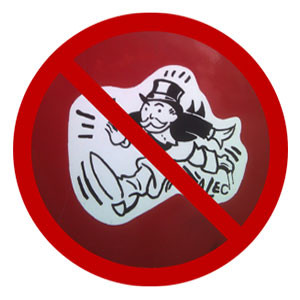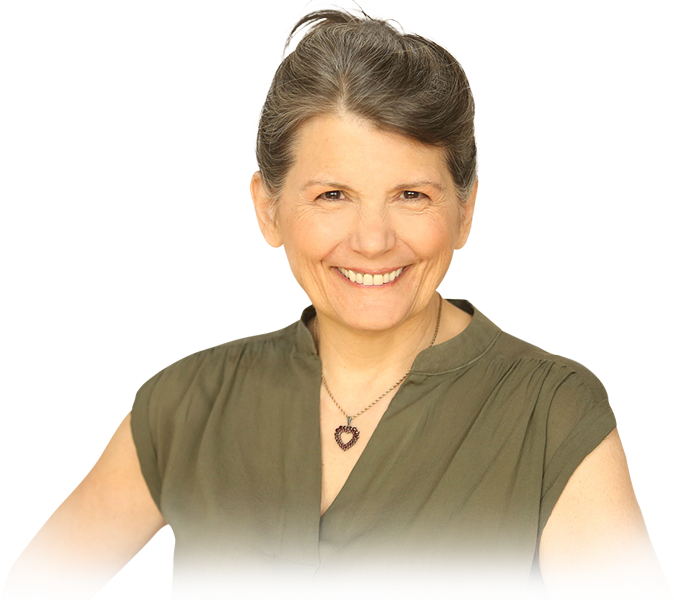 Do you know anyone who decided to become a hands-on practitioner, healer or movement educator in order to get rich quick?
Do you know anyone who decided to become a hands-on practitioner, healer or movement educator in order to get rich quick?
Nah—me neither.
The idea is hateful to most people studying to become practitioners.
In fact, in some practitioner training programs, the byword is “Get used to poverty”—which to me seems demoralizing to the point of despair.
Why would you want to spend your resources to get training in a modality that has so little value in the world that you can’t make a living with it?
Do you really want to spend that time, money and energy to get a hobby?
IS it unrealistic to dream about a practice where you help people AND earn a living?
No, not at all—but you can’t make that dream real unless you’re willing to look at your relationship with money and tackle the issues that come up. (By the way, you may think you don’t have issues with money—all I can say is—you’d be the first person on the planet who didn’t!)
Your attitudes about money shape your practice
Most of the practitioners who seek my help are genuinely interested in helping people, first and foremost. While they acknowledge that they want to be respected and earn enough to live, money is just not a driving force in their lives. Money runs last, compared to doing what they love and really making an impact on another person’s life — helping people to transform.
Frankly, this is a major reason why so many practitioners end up having far less impact than they hope to have—and why too many end up leaving the work they love to find something that actually does pay the bills.
Like a lot of other things, our ability to deal with money locates us somewhere on a spectrum.
Being on one end or the other of that spectrum means being focused on money first or last, and neither is particularly healthy. I’m sure you’ve got opinions about what being overly focused on money looks like, and I’m guessing you may have experience with what not being focused on money at all feels like.
A healthy relationship with money would land you somewhere in the middle—where you can recognize that it’s a part of life, pay an appropriate amount of attention to it, create appropriate responses to money “triggers” and actually earn a living you feel good about with your favorite transformational work when the time comes to charge for it.
From somewhere in the middle, you are able to see things with greater clarity and put them in perspective. You can develop an understanding of the value of what you offer in relation to what you need (in order to be able to continue offering it). You can ask people to pay you a fair amount for what you give them without flinching or immediately discounting your work by lowering your price. Your confidence and self-esteem do not plummet when someone says “no.”
When you put money last and avoid learning to have a working relationship with it, you can’t take care of yourself so it’s all too easy to end up without enough to live on.
If you can’t earn a living, you won’t be able to afford to help people with your work.
So now, wherever you are on your Practitioner Journey, start considering your relationship to money. Think about how it might need to change in order for you to be successful.
- What do you assume to be true about money?
- What is really true about money?
- How has your attitude about it been shaped by others?
- How does that attitude help you? Hurt you?
- How will it stop you from serving people you’re here to help?
- What would it take for you to change it so that your future clients benefit more from your work?
Why now?
Why is this important now? If you’re still in your training, it would be so much nicer to simply bask in the bliss of the transformation you are experiencing. If you’re just getting started you have loads of other stuff to think about. If you’ve been at it for a while, you’ve probably got enough clients that you think it doesn’t matter.
Well… it’s simple, really: What happens later depends on what you do now.
What you don’t look at can’t be helped. Can’t be solved. Can’t be changed. And ultimately, can’t work out the way you might be dreaming about it… because it isn’t connected to reality.
“Not looking” is a muscle. The more you exercise it, the better you get at it…. so
What you avoid looking at now, you’ll be better at avoiding 5 years from now and 10 years from now. The longer you succeed in not looking at it, the harder it will be to see it — when the habit of “not seeing” is deeply ingrained, it encompasses every situation in which you need protection from changing your belief. And you’ll never even recognize it’s happening because it will take over too quickly.
If your dream is to help other people, remember that you need a viable, sustainable practice in order to make your dream come true. Act now to get it!
~~
If this post made you think about your practice, subscribe to make sure you don’t miss a thing! You’ll get information on a variety of practice-building topics and special offers just for hands-on practitioners.

